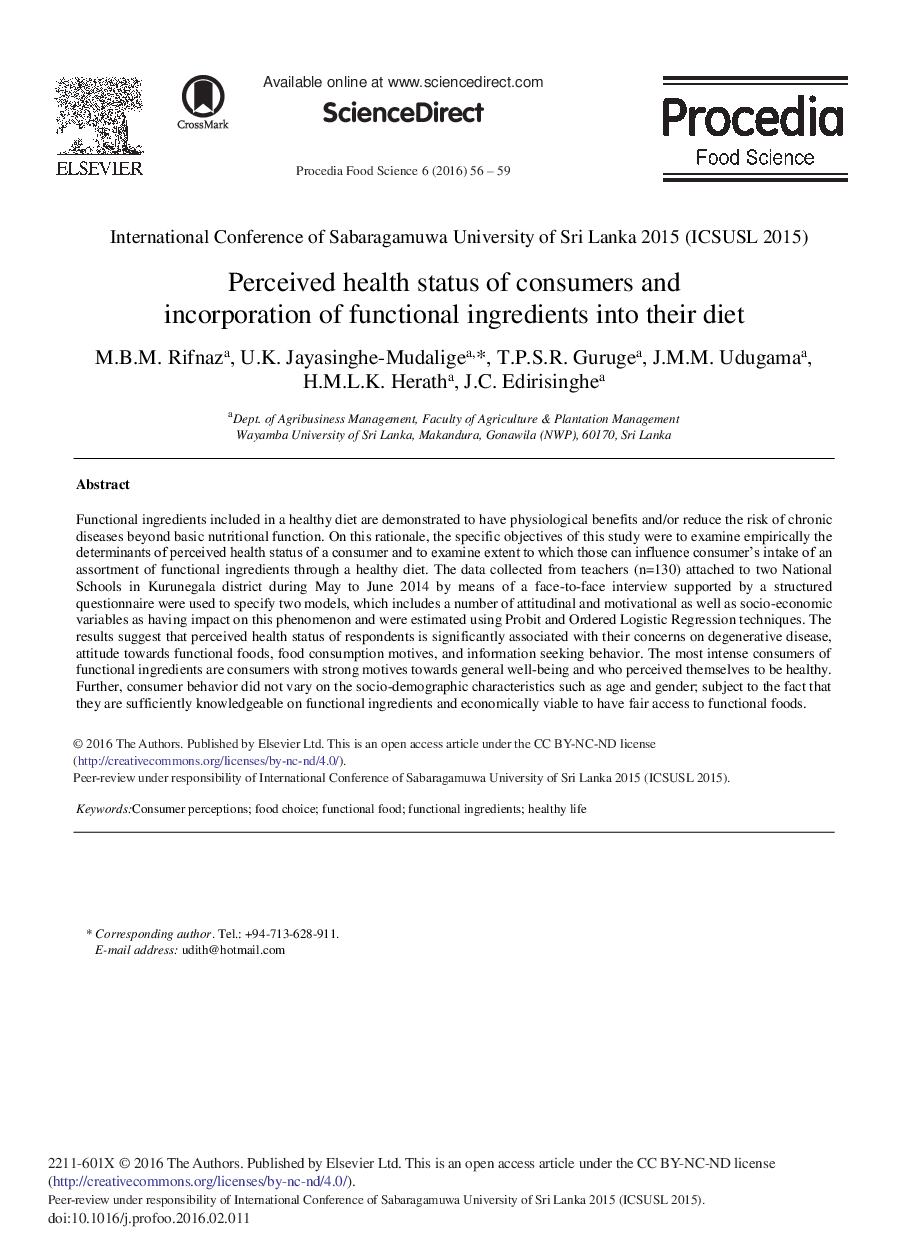| Article ID | Journal | Published Year | Pages | File Type |
|---|---|---|---|---|
| 1266177 | Procedia Food Science | 2016 | 4 Pages |
Functional ingredients included in a healthy diet are demonstrated to have physiological benefits and/or reduce the risk of chronic diseases beyond basic nutritional function. On this rationale, the specific objectives of this study were to examine empirically the determinants of perceived health status of a consumer and to examine extent to which those can influence consumer's intake of an assortment of functional ingredients through a healthy diet. The data collected from teachers (n=130) attached to two National Schools in Kurunegala district during May to June 2014 by means of a face-to-face interview supported by a structured questionnaire were used to specify two models, which includes a number of attitudinal and motivational as well as socio-economic variables as having impact on this phenomenon and were estimated using Probit and Ordered Logistic Regression techniques. The results suggest that perceived health status of respondents is significantly associated with their concerns on degenerative disease, attitude towards functional foods, food consumption motives, and information seeking behavior. The most intense consumers of functional ingredients are consumers with strong motives towards general well-being and who perceived themselves to be healthy. Further, consumer behavior did not vary on the socio-demographic characteristics such as age and gender; subject to the fact that they are sufficiently knowledgeable on functional ingredients and economically viable to have fair access to functional foods.
